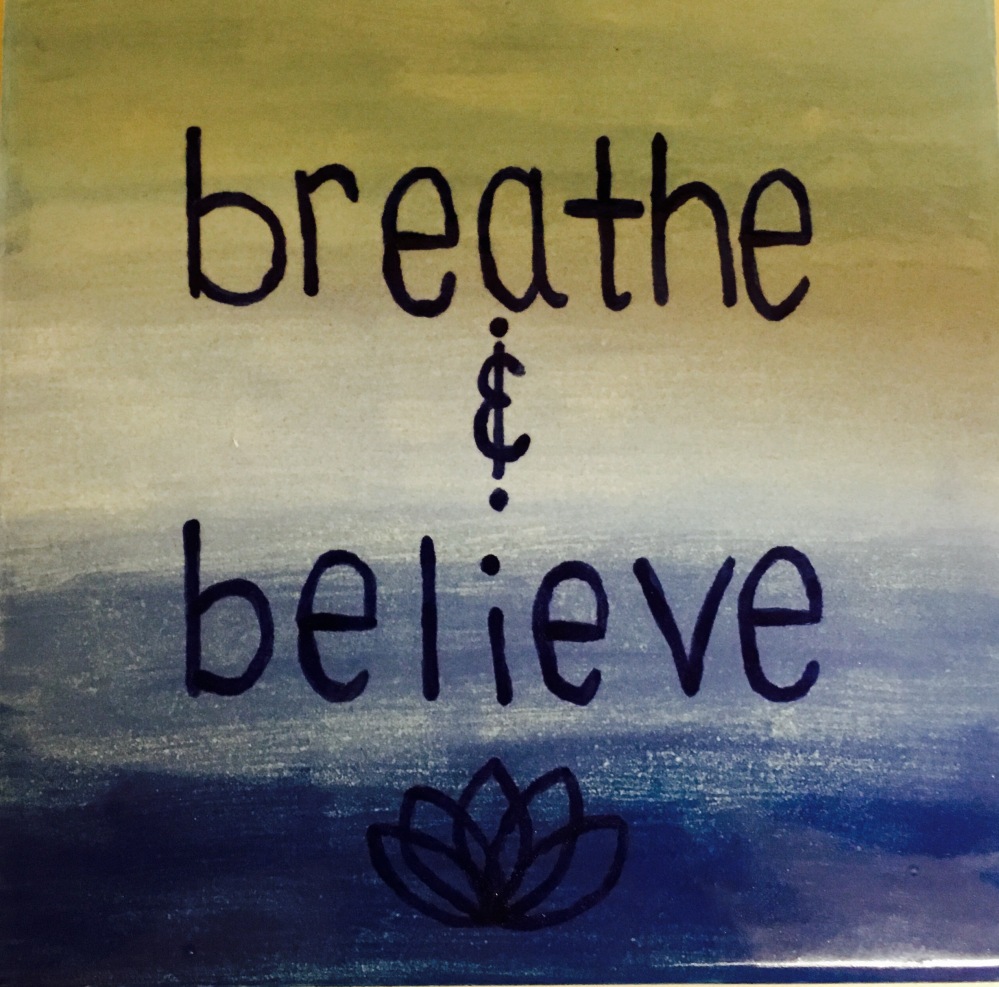About a year ago, I wrote a post called Believe: My Personal Faith, which discussed the word I was using to deal with adversity- specifically my enigmatic autoimmune conditions leaving me unable to run. At the time, I was wholeheartedly engrossed in the power of the word “believe”- trusting that this was temporary; that my body would soon decide to heal itself; that I would one day be happy, healthy, and flourish; that I would stop complaining to my family and stop withdrawing from social interaction, because I would soon run again and everything in my life would be better. This word will always hold a special place in my heart. In the past few months, however, I have realized a fundamental flaw in my philosophy. Placing all faith in a brighter future prevented me from relishing the present. In essence, my persistent belief was a defense mechanism, providing comfort that this mental anguish was temporary, that the pain would soon pass.
There is no doubt that the word “believe,” allowed me to endure, but my definition of strength and belief involved constantly pushing my body to its physical and mental tipping point- thinking that my life was not fair, beating myself up for it, and justifying that if I just tried harder and suffered further, I would eventually get what I deserved. To me, believing was going, going, and going coupled with frequent emotional outbursts- life isn’t fair, I hate my body, why me?
In my last post, I mentioned the two wonders that a life without running has brought me. Podcasts were the first, and I am now going to discuss yoga. I began practicing yoga regularly at the beginning of the summer, and it has utterly transformed my outlook on life. By uniting breath and movement, body and mind, I have learned to approach hardship with acceptance rather than reactance. This may sound a bit abstract, but it’s actually quite simple. Instead of getting bogged down by the time it takes to measure out all of my portions of food, I acknowledge this annoyance, measure it all out, and get back to my homework. Rather than waking up in the middle of the night with a low blood sugar, becoming angry about needing to take glucose, and scrutinizing myself for inaccurately predicting the exact dosage of insulin to balance the carbohydrates in my dinner, I simply acknowledge the annoyance and go back to sleep. Instead of demonizing my body for inflating like a balloon anytime I eat anything, I tell myself that it’s okay to be upset and move on. I am in no way ignoring the pain that my illnesses cause me on a daily basis, but I am substantially minimizing the mental toll they take on me.
Yoga is not about self-improvement, it’s about self-acceptance.
This quote sums up what yoga has brought me- the ability to accept the reality of being unable to control my body. Rather than relentlessly attempting to move forward, I am stopping to breathe. I am uniting my mind and body- using the core principles of yoga to heal.
I am currently in a course called The Dalai Lama’s Ethics, and we are learning about the importance of self-compassion. Before practicing yoga and taking this course, I would’ve dismissed the term “self-compassion” as weak. Indulgent. Unnecessary. My only self-care involved waking up when it’s pitch black, when some of my peers are still up from the night before, cranking out cardio to the point of exhaustion, and feeling extremely guilty upon ever not doing so. Sure this alleviates stress, but I doubt that this was what His Holiness envisioned. I don’t know why, but after all these years, everything changed on my yoga mat. I realized that destructive thoughts and behaviors were leaving my body in perpetual fight-or-flight mode and decided that something needed to change. Since being more aware and accepting of my distressed somatic symptoms and cognitions and actively striving to breathe both on and off my mat, I have realized the truth in the Dalai Lama’s emphasis on self-compassion. In order to have compassion for others, we must first accept ourselves. For many years, I felt alone in my struggles with medical adversity. Since I was such a unique patient, I doubted that any of my peers could possibly relate. But an inability to physically feel what I feel does not necessarily prevent them from treating me with compassion. It is only a few weeks into the semester, but being open and accepting of my own struggles and empathizing with those of others has already taken relationships to new levels.
I still want to push myself to my greatest potential, and I still have hope. I still believe. I have concluded, however, that believing without breathing, acknowledging, and accepting is unsustainable. Now, I breathe and believe.

Aww Melissa!! 💗💗💗
LikeLike